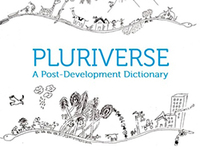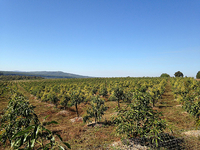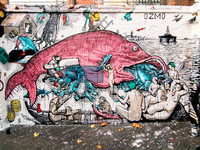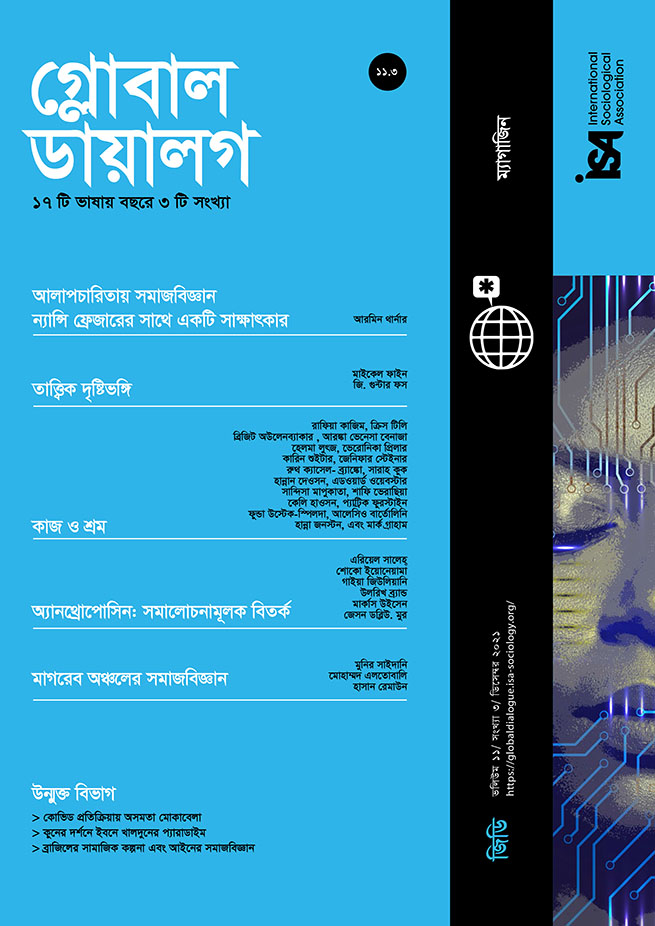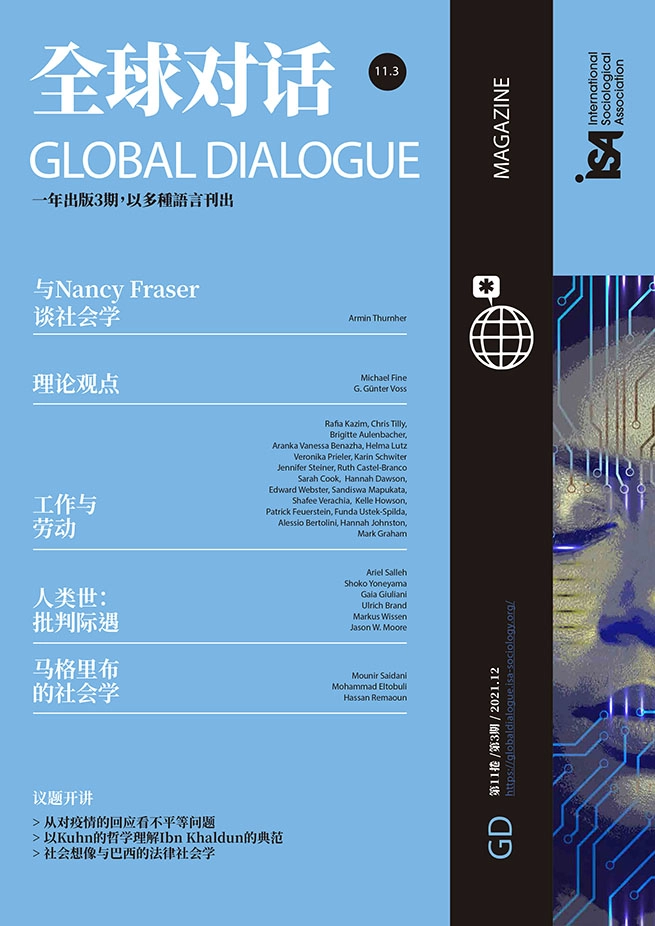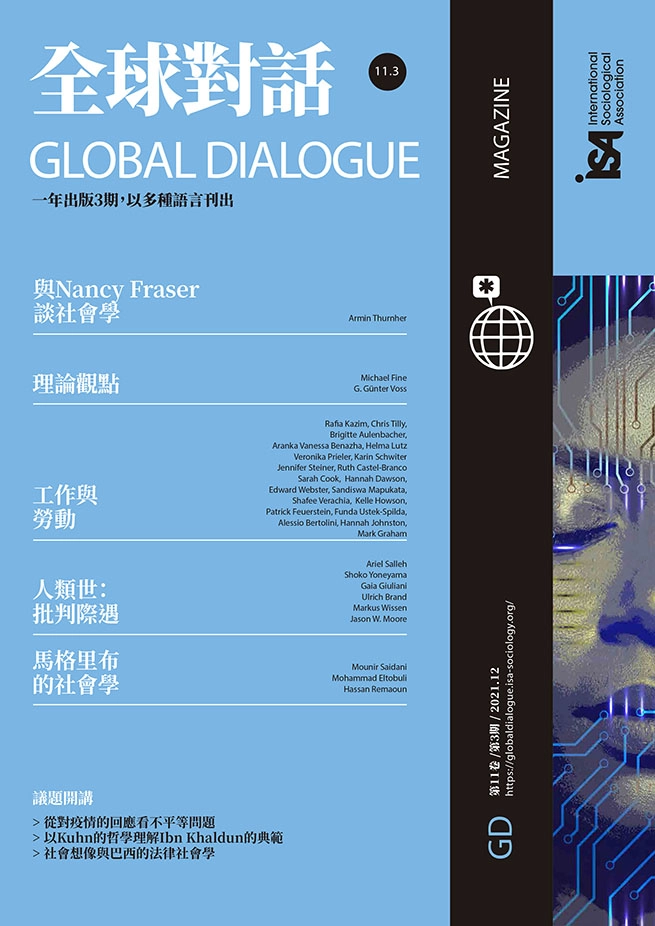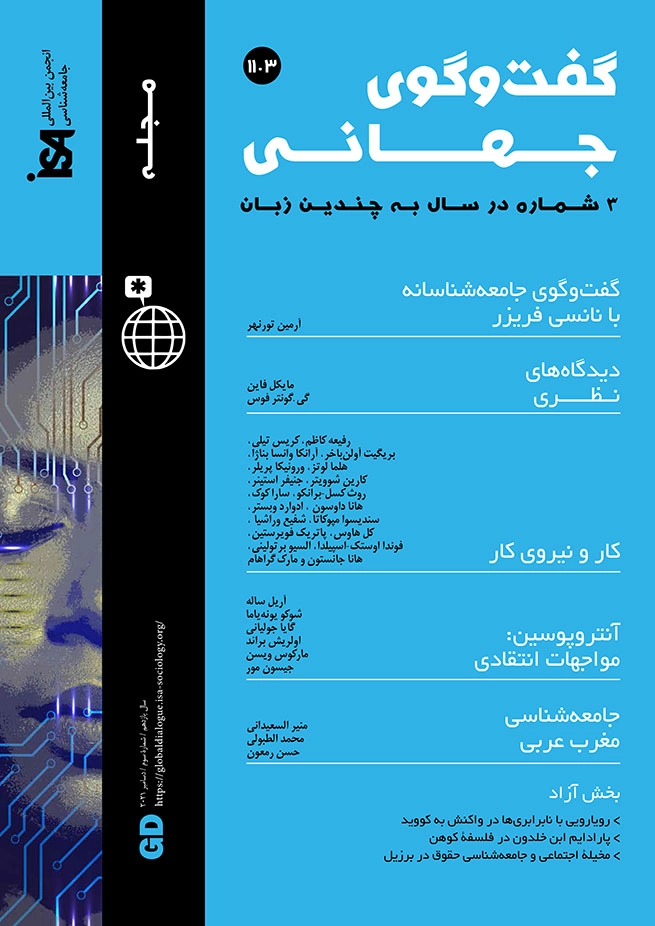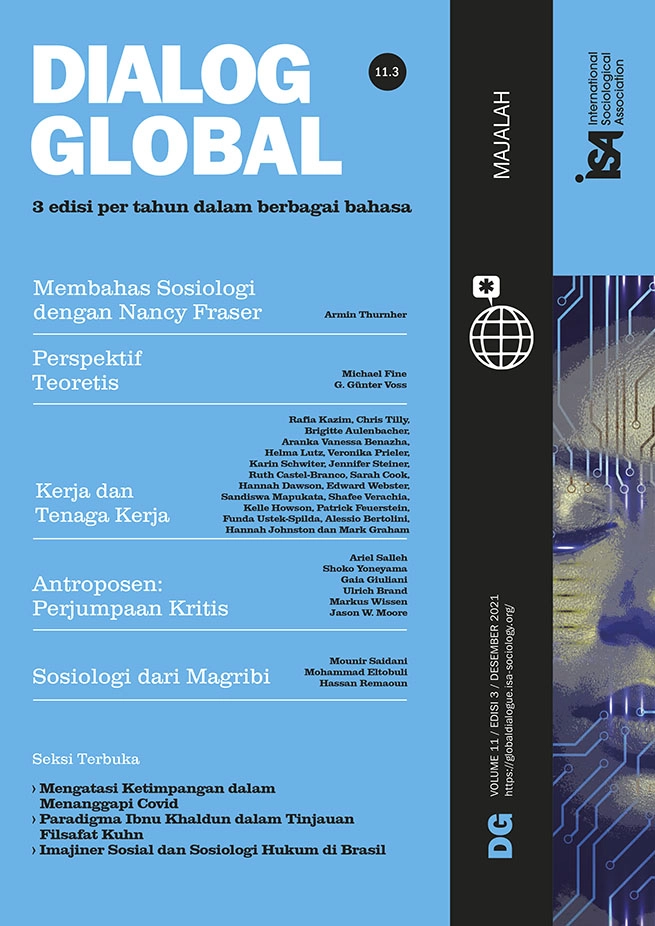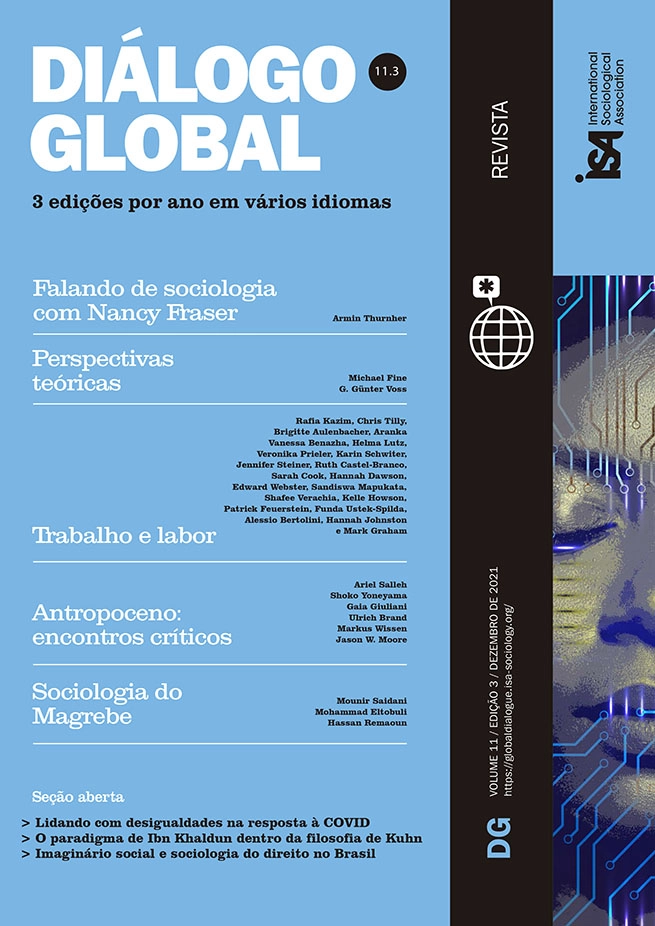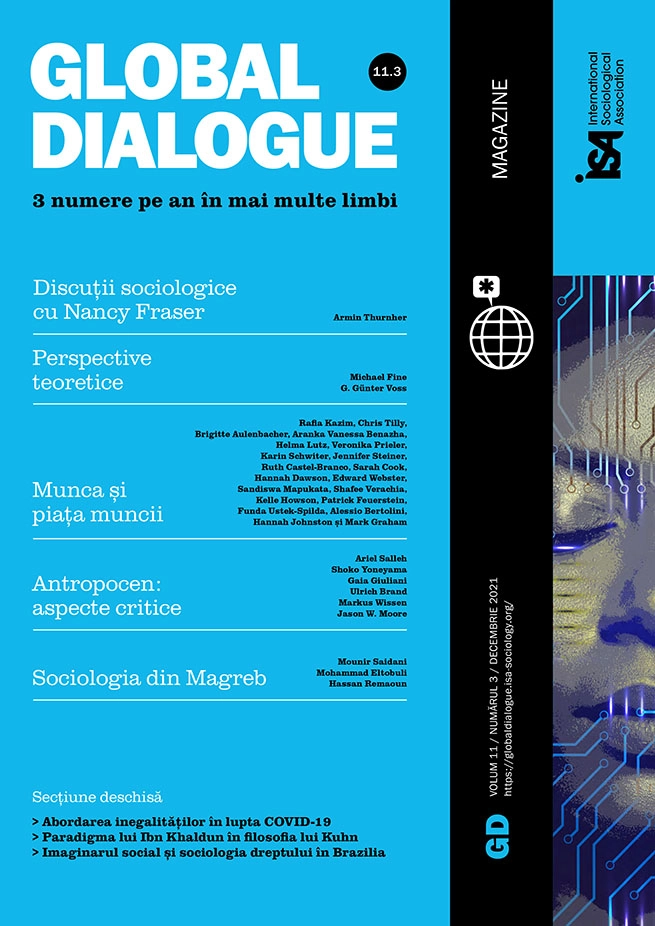Recently, the Anthropocene as a concept and as a set of processes and phenomena has been brought to the center of debates in politics, as well as the arts, culture, and academia. Controversially, its more mainstream meaning refers to processes that have been traced back by scholars either to the second or the third industrial revolutions, when human intervention supposedly began having a great impact on the geological, physical, and biological composition of the planet.
Critical views on the theory of the Anthropocene
In more critical views, the Anthropocene and the public debate on it serve to reconceptualize colonial and capitalist modernity (according to these critiques, the Anthropocene is a modern fact) and the relations between the human, the non-human, and the inanimate that have been privileged since. This reconceptualization takes place from a radical reconsideration of power structures governing organic and inorganic elements on a planetary scale.
These critical positions germinated at the intersection of anti-capitalist and decolonial approaches, from global anti-racist, feminist and queer critiques and epistemologies across disciplinary fields, from biology, geography, geology, and physics to cinema, sociology, anthropology, politics, philosophy, poetry and performative art. They draw from two important ideas developed within a transdisciplinary dialogue in environmental humanities, the first, that the environment is also a social phenomenon and the second, that in order to reverse the violent impact of the Anthropocene on any living being, the interdependence among humans and other living and inorganic components of the Earth has to be acknowledged and made political.
The Anthropocenic Anthropos and its monsters
This brief contribution stems from these critical reflections, focusing on a specific feature of the Anthropocene related to the semiotic productivity of imaginaries, rhetoric, and practices, as well as juridical, political, and popular cultures emanating from a collective transcendental subject (Foucault) which can be identified as the Anthropos of/in the Anthropocene.
As Elisabeth Povinelli stresses, this Anthropos encompasses the Cartesian subject identified in postcolonial and decolonial critiques and the liberal man of the social contract, identified by feminist scholars as tied to the emergence of the violent Eurocentric and Western modernity that reshaped the world. Attached to this Anthropos is a vision of the world, history, geography, and humanity that - in semiotically constituting mind and body, human and not-human, man and woman, white and not-white, good and bad, rational and irrational, secular and fanatic, right and wrong, superior and inferior, salvific and deadly as separated entities – has imposed ontologies and logics that sustain and reproduce capitalism and its violence since the medieval premises of Eurocentric modernity.
Connecting theories and reflections on the entanglements between ontologies and logics of the Anthropocene on the one hand and racial capitalism, patriarchy, and coloniality on the other, I explore the crucial role the historically-produced discursive process of monstrification plays in constituting the Anthropos of the Anthropocene and in contributing toward the creation of the hegemonic “we” at the center of power structures and the extraction of value that have their origins in capitalist and colonial modernity. This survey reveals the relations between the operation of ontologies and logics of the Anthropocene and their legitimation across time and space, unveiling connections between the process of monstrification and the violence against colonial rebels, fugitive slaves, quilombolas, witches, infidels, rioting peasants, striking industrial workers, and indigenous resistance. It does so by linking the discursive construction of moral panic against them to colonial violence, state authoritarianism, and deadly extractivism.
In my most recent book Monsters, Catastrophes and the Anthropocene: A Postcolonial Critique, I explore European and Western imaginaries of natural disaster, mass migration, and terrorism through a postcolonial inquiry into modern conceptions of monstrosity and catastrophe. Established icons of popular visual culture in sci-fi, doomsday, and horror films and TV series, as well as in images reproduced by news media, help trace the genealogy of modern fears to ontologies and logics of the Anthropocene. The book does not stop at unveiling the inherent violence of the Anthropocene but goes on to propose a feminist, post-developmental and ecologist epistemology and a political project that embraces a new conception of the political.
A feminist political project for the present
In response to the Anthropocenic logics and ontologies, I suggest the political project of interdependent care, self-care, and Earth care. From Western modern feminisms, I borrow the centrality of care – that is, that the well-being (psycho-social and cultural, sexual and economic) of individuals and communities is considered as a commons, a resource and a social duty (Nancy Fraser; Stefania Barca). The issue of care, nonetheless, is read through queer critiques, and those of Indigenous, Black, and working-class women. Drawing from Sara Ahmed and Audre Lorde’s articulations, I consider self-care as a feminist project for individual and collective autonomy that integrates care, otherwise structured by patriarchal, racist, and capitalist gender roles, and that presupposes mutual care between humans and not-humans.
In the context of people on the move, the decolonial and anti-patriarchal struggles of minorities, as well as local and Indigenous resilience and resistance against environmental disasters and their neocolonial securitization, self-care means individual and collective autonomy, self-preservation, and solidarity against state surveillance, discipline, and abuse. The political project of interdependent care, self-care, and Earth care couples anti-authoritarianism with anti-colonial struggles against extractivism, exploitation, and vulnerabilization. This project is based not only on the understanding that capitalism and patriarchy, with their militarized walls and borders, camps and carceral archipelagos, systems of surveillance, immobility and forced mobility are essentially racist, but also on the premise that the coloniality of racial capitalism and patriarchy (Cedric J. Robinson, Ruth Gilmore, Laura Pulido) is grounded in a relationship with the planet that is solely profit-driven.
The anticolonial foundations of such a political project are thus necessarily anti-extractivist and based on the interdependence of all human, non-human, and inanimate components of the planet.
Such a conception brings to the foreground the issue of Earth care, that is, an anti-capitalist relation between all the planet’s components. Drawing from Indigenous pluriverses, political movement epistemologies such as Kurdish jineolojî, and Western intellectuals like Donna Haraway, Stacey Alaimo, and Karen Barad, this plan extends the idea of care to non-human life. It is only through the triad of care, self-care, and Earth care that human responsibility towards human and non-human life and nonlife becomes a political value.
Many Global South and Indigenous communities, marginalized inhabitants of the Global North, and political movements across the planet embody these principles. Only a radical planetary political project that acknowledges the deadly monstrosity of the Anthropocenic logics and ontologies, and recognizes the situatedness and vital multiplicity of the responses to them, is able to actively contrast it.
Gaia Giuliani, Centre for Social Studies, University of Coimbra, Portugal <gaiagiuliani@ces.uc.pt>
